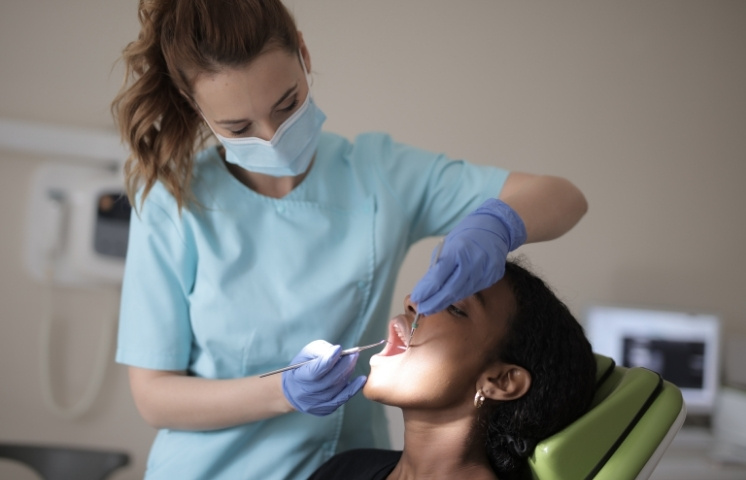We are not a registered Medicare/Medicaid Provider

Imagine this: you’re enjoying a delicious meal, savoring every bite. Suddenly, a sharp pain explodes in your tooth, throbbing with relentless intensity. Your smile, once a source of confidence, now contorts in discomfort. This, my friend, could be a sign of a tooth abscess, a nasty infection lurking beneath the surface of your pearly whites.
But here’s the good news: you can significantly reduce your risk of experiencing this dental drama by practicing good oral hygiene. Think of it as building a fortress around your teeth, one that keeps out the villainous bacteria that can wreak havoc.
So, how exactly does brushing and flossing become your knight in shining armor? Let’s delve into the battlefield and explore how a good oral hygiene routine combats tooth abscesses.
Plaque: The Sticky Foe
Our mouths are teeming with bacteria. While some are harmless, others can be detrimental to our oral health. These bacteria constantly form a sticky film on our teeth called plaque. If left unchecked, plaque hardens into tartar, creating a formidable shield for the bacteria and making it even harder to remove them.
Here’s where brushing comes in like a brave warrior. Brushing twice a day with fluoride toothpaste disrupts plaque buildup, preventing it from accumulating around your teeth and gum line. Think of it as regularly dismantling the enemy’s fortifications before they can launch a full-scale attack.
Fluoride: The Enamel’s Reinforcement
Fluoride, a mineral found in most toothpastes, acts as a powerful ally in your fight against tooth abscesses. It strengthens tooth enamel, the hard outer layer of your teeth that serves as the first line of defense against decay. Strong enamel makes it much harder for bacteria to penetrate the inner pulp of your tooth, where an abscess can form. Imagine fluoride as reinforcing the walls of your dental fortress, making it more resistant to invasion.
Flossing: Reaching the Hidden Enemies
Brushing is fantastic, but it can only reach some places. Bacteria love to lurk between teeth in those tiny crevices that your toothbrush can’t quite conquer. That’s where flossing steps up as your stealthy hero.
Flossing daily removes plaque and food particles from these hidden spaces, preventing bacteria from multiplying and causing problems. It’s like having a skilled scout who identifies and eliminates enemy pockets before they can cause significant damage.
Gum Health Matters, Too!
Maintaining healthy gums is another crucial aspect of preventing tooth abscesses. Brushing and flossing not only keep your teeth clean but also massage your gums, improving blood circulation and promoting overall gum health.
Healthy gums provide a strong foundation for your teeth and act as a natural barrier against bacteria. When gum disease weakens this barrier, bacteria can more easily invade the tissues surrounding your tooth root, potentially leading to an abscess.
Regular Dental Checkups: Your Trusted Strategist
While a good oral hygiene routine is your first line of defense, regular dental checkups are equally important. Think of your dentist as a wise strategist who can identify potential threats before they escalate.
During a checkup, your dentist can detect cavities and gum disease in their early stages, allowing for prompt treatment and preventing them from developing into more serious problems like a tooth abscess. They can also provide professional cleaning, removing any stubborn plaque or tartar that your brushing and flossing might have missed.
The Takeaway: Fight for a Healthy Smile
Tooth abscesses are no joke. They can cause severe pain and swelling and even pose a risk to your overall health if left untreated. The good news is that by practicing good oral hygiene – brushing twice a day, flossing daily, and using fluoride toothpaste – you can significantly reduce your chances of experiencing this dental nightmare.
Remember, prevention is always better than cure. So, take charge of your oral health today. Build your defenses, enlist the help of your dentist, and keep those villainous bacteria at bay for a healthy, pain-free smile that shines bright.
For additional personalized advice and to create a customized oral hygiene plan, consult with a preventive dentist. They can assess your individual needs and recommend the best strategies to keep your smile healthy and happy.

